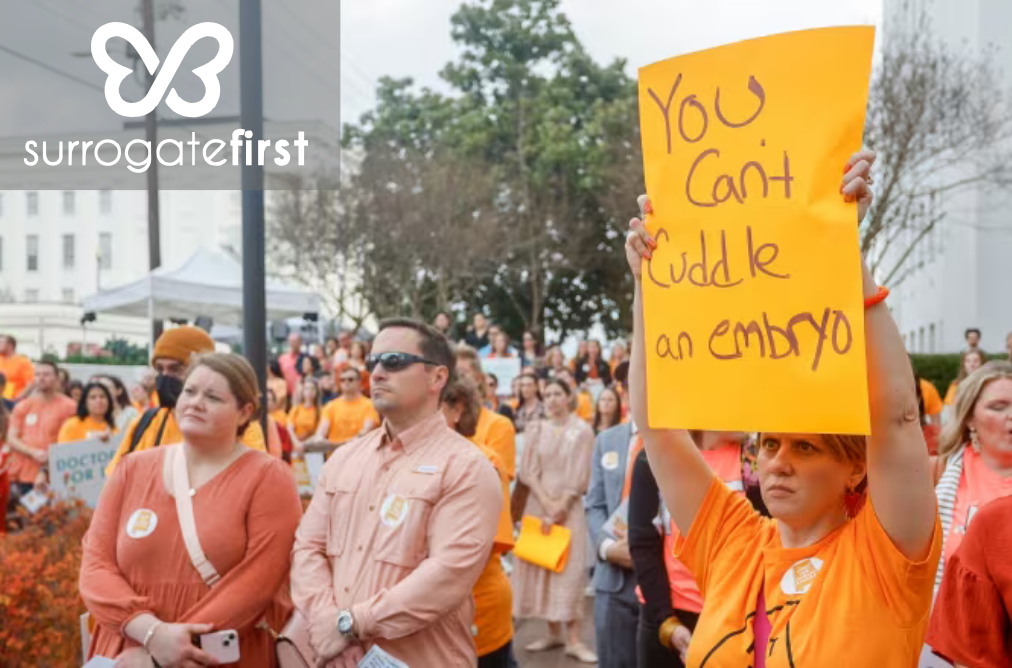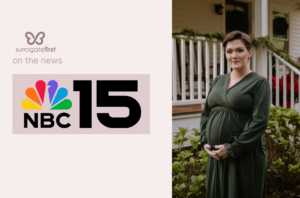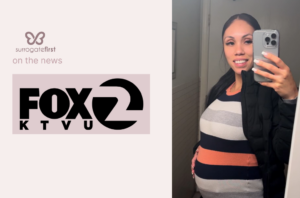“Anyone who has struggled to conceive understands how mentally draining the process can be,” said Jeff Hu, CEO of SurrogateFirst. However, for many intended parents and same-sex couples, this dream has been cast into uncertainty by the recent wave of personhood legislation sweeping across several states.
An Overview of Family Equality Legislation
On February 16, 2024, the Alabama Supreme Court issued a ruling declaring that embryos created through IVF should be considered children. This ruling has started a movement of personhood legislation that directly impacts those relying on in vitro fertilization (IVF) and surrogacy for their family-building dreams.
By granting legal rights to embryos, these laws could significantly restrict access to vital family-building services, posing immediate challenges, particularly in states like Alabama, Missouri, Arizona, and Georgia, where personhood status is granted to fetuses at every stage of pregnancy.
Immediate Effects of Legislation on Family Building Efforts
Through SurrogateFirst’s 2024 report on Insights and Impact of Personhood Legislation on Family Equality, a resounding 98% of intended parents have expressed profound concerns over the potential obstacles these laws might create for their family-building journeys.
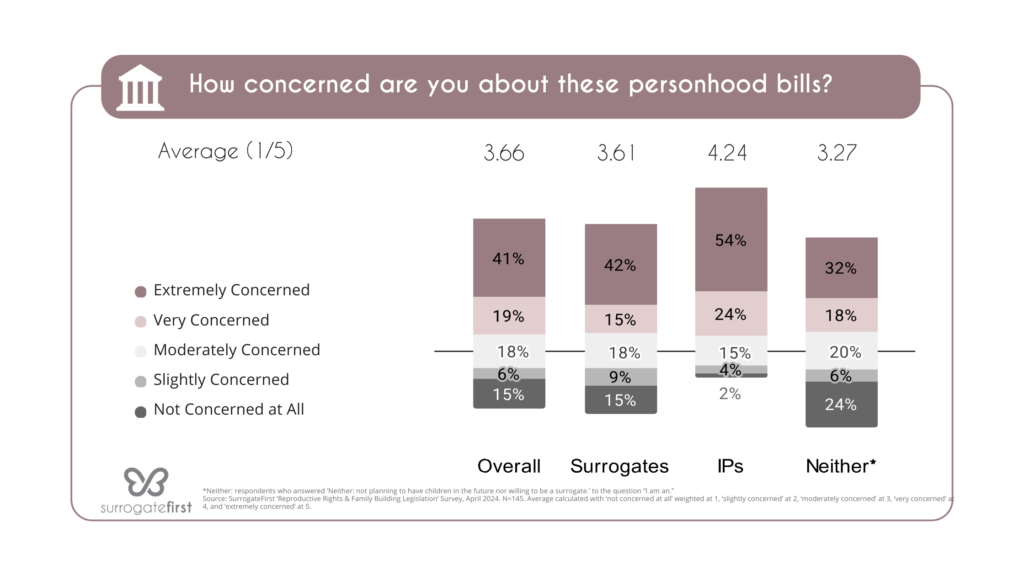
“We’re fortunate our state isn’t currently affected, but this is concerning overall and would impact me directly if I lived elsewhere,” said an intended parent from our report survey.
The impact of these legislative changes is already being felt, with 18% of intended parents delaying IVF treatments and a staggering 20% postponing surrogacy plans altogether. The financial burden has escalated for 50% of intended parents, and a concerning 67% report increased mental stress.
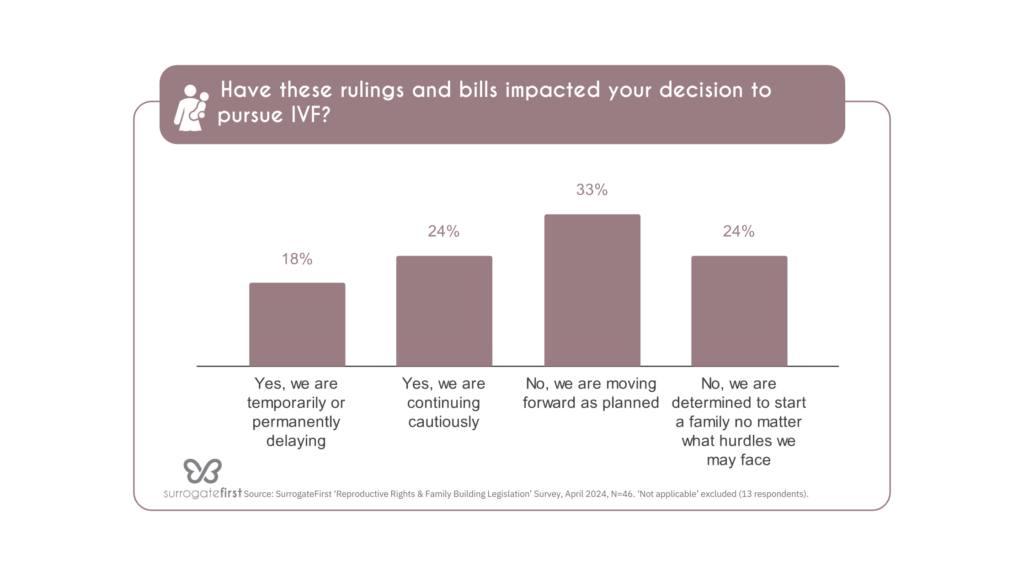
Disproportionate Impact on LGBTQ+ Intended Parents
Moreover, the LGBTQ+ community has been hit particularly hard, with 67% of same-sex couples expressing twice as much concern about the impacts of IVF and surrogacy compared to their heterosexual counterparts. For many within this community, assisted reproductive technologies are the only viable path to parenthood, making the consequences of these laws even more devastating.
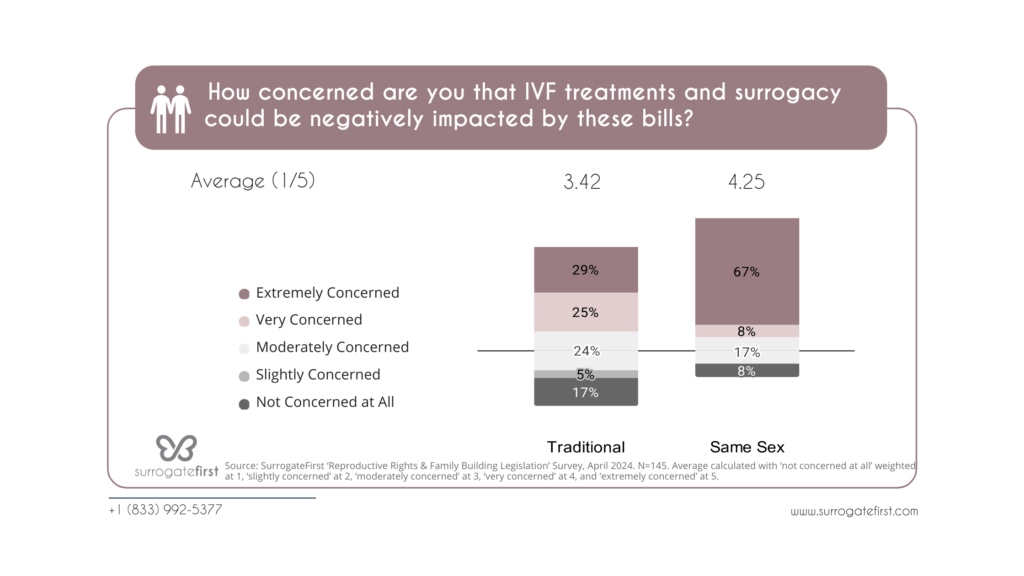
Recently, Nicholas Maggipinto, 38, and Corey Briskin, 35, a Brooklyn-based gay couple that couldn’t access IVF benefits due to recent rulings have decided to sue New York City.

“We were disheartened to say the least when we were told that we aren’t eligible for the IVF benefit because of the way the policy is phrased,” told Briskin. “We are entitled to equal treatment under the law.”
Surrogates’ Heightened Concerns Yet Increasingly Motivated
While the primary focus has been on intended parents, surrogates themselves are grappling with heightened troubles. A staggering 55% of surrogates have expressed deep concerns about the legislative effects on IVF, a rate four times higher than the general population.
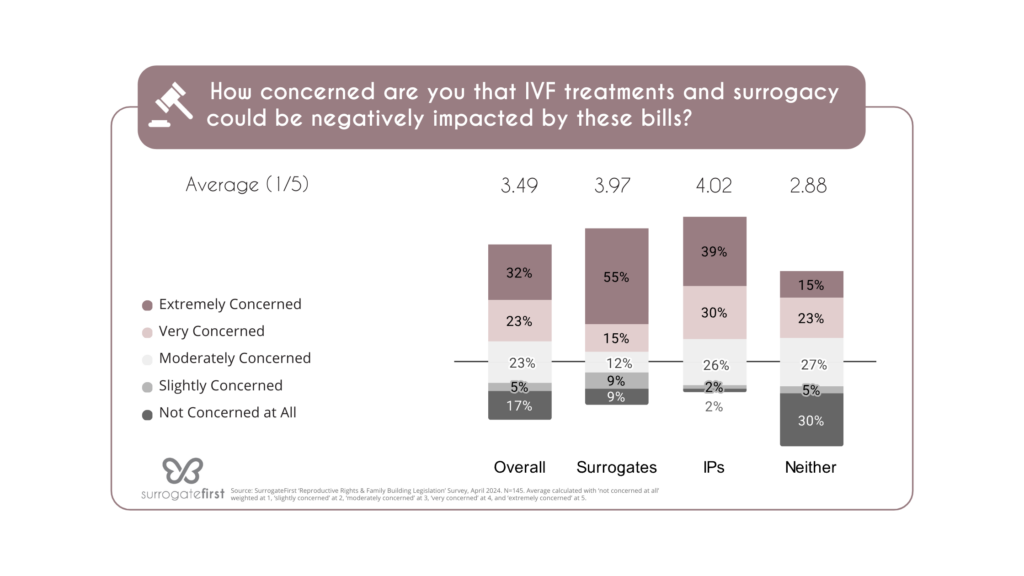
Long-Term Implications and Community Impact
Though the immediate effects loom large, the long-term implications remain uncertain. Experts caution that surrogacy itself could become the next battleground, particularly given the Vatican’s stance and legislation allowing discrimination based on religious beliefs.
As one of SurrogateFirst’s lawyers states:
“It’s understandable some worry surrogacy could be the next domino to fall in light of the Vatican’s position, personhood legislation and state legislation allowing individuals to deny services and discriminate for religious reasons. Nonetheless, legal surrogacy is actually becoming more secure and expanding with its legalization in Michigan and codification in more states. Surrogacy as a family building option remains legally safe and secure in most of the US.”
A glimmer of hope shines through, with legal surrogacy expanding in states like Michigan, signaling its increasing acceptance nationwide.
Closing
The profound concerns surrounding personhood laws cannot be ignored, nor can the resilience of those whose family dreams hang in the balance. SurrogateFirst stands firm in its commitment to guiding intended parents through these challenges, offering comprehensive consultations and services to help make their dreams a reality.
If you are an intended parent or surrogate navigating these uncertain times, reach out to SurrogateFirst today. Our team of experts is ready to listen and accompany you on your family-building journey, providing the resources and support you need to overcome any obstacle. Your dream of parenthood deserves to be realized, and we are here to help make that happen.

